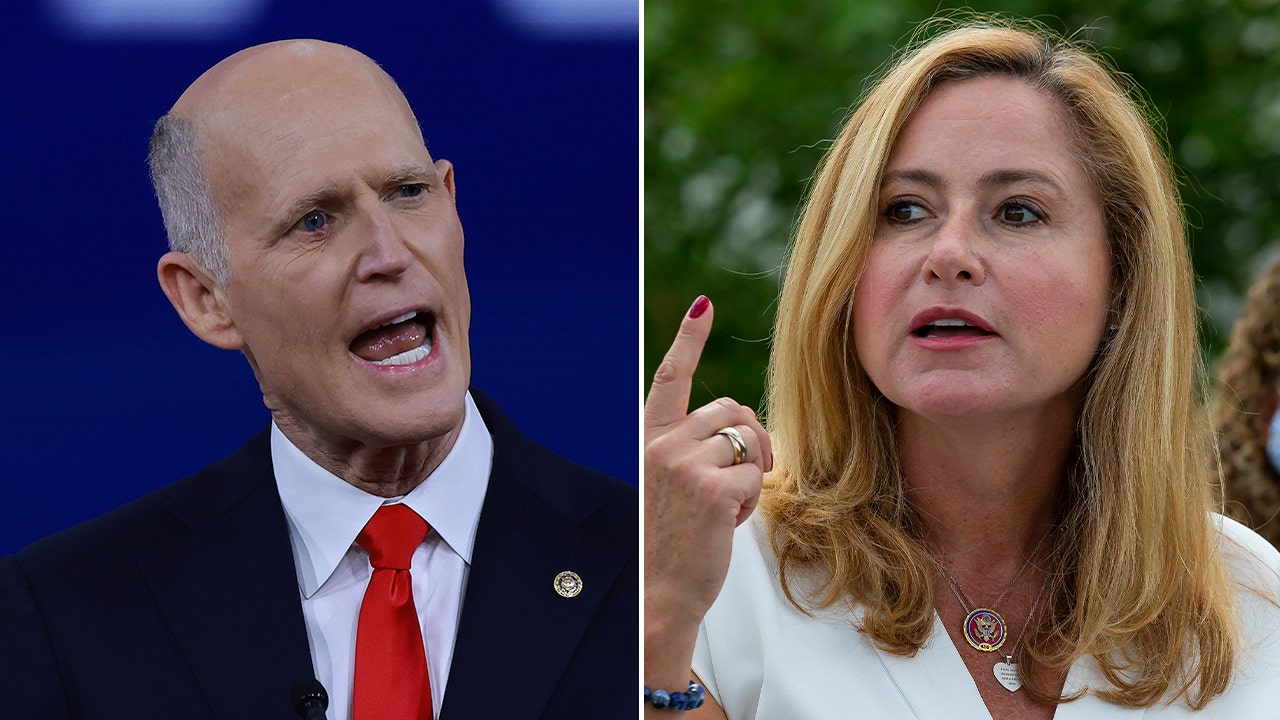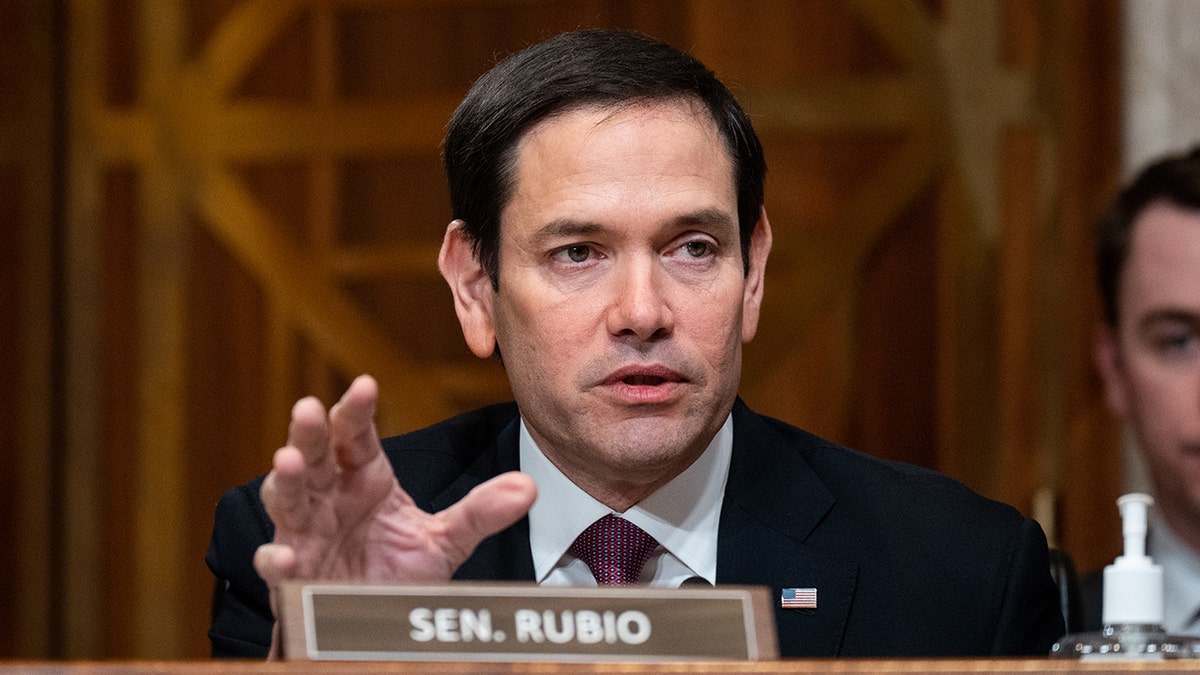Politics
U.S. Can’t Bar Man Convicted of Nonviolent Crime From Owning Gun, Court Rules

A federal appeals court ruled on Tuesday that a man who committed a nonviolent crime cannot be legally prevented from owning a firearm — a potential setback to gun regulations spurred by a Supreme Court ruling last year that vastly expanded the right to bear arms.
In an 11-to-4 ruling, the U.S. Court of Appeals for the Third Circuit overturned decisions by lower courts that had prevented Bryan Range, a Pennsylvania resident who had sued the state after being blocked from buying a shotgun for hunting and self-protection over a conviction for lying on a benefits application in the 1990s.
In a majority opinion, Judge Thomas M. Hardiman repeatedly cited the Supreme Court ruling last June, written by Justice Clarence Thomas, in which the majority established a new standard that dictated that gun laws conform to “historical traditions” dating to the 18th and 19th centuries.
“In sum, we reject the government’s contention that only ‘law-abiding, responsible citizens’ are counted among ‘the people’ protected by the Second Amendment,” wrote Judge Hardiman, a George W. Bush appointee who was on former President Donald J. Trump’s short list to serve on the Supreme Court after the death of Antonin Scalia in 2016.
It is unclear whether the ruling applies to similar cases: Mr. Range’s lawyer, Michael P. Gottlieb, said he brought the case for the “benefit of my client only” and believes it will make its way to the Supreme Court if the Justice Department appeals.
A spokeswoman for the department did not immediately return a request for comment.
Three judges, concurring with the majority, wrote that the decision “does not spell doom” for a section of federal law that strips gun ownership from anyone “convicted in any court of a crime punishable by imprisonment for a term exceeding one year.”
Judge Hardiman wrote that his opinion was “narrow.” But in a sharply worded dissent, Judge Patty Shwartz, an Obama appointee, said that the majority opinion would set a broad and dangerous precedent.
“While my colleagues state that their opinion is narrow, the analytical framework they have applied to reach their conclusion renders most, if not all, felon bans unconstitutional,” she wrote.
Judge Hardiman argued that punishing Mr. Range by revoking his gun rights for an offense that did not involve violence gave lawmakers too much power “to manipulate the Second Amendment” by labeling as a criminal someone, like Mr. Range, who has led an otherwise law-abiding life.
Federal laws bar people convicted of state or federal crimes that are punishable by more than a year in prison from buying weapons. In some states, including Pennsylvania, the federal ban takes effect after conviction on a misdemeanor that has a potential sentence of at least a year.
The decision, which was closely watched by national groups on both sides of the firearms debate, is the latest in a succession of federal court rulings that roll back existing gun regulations.
But most of those cases have been heard in the lower courts and only one other, over a decision that restored gun ownership rights to a man who was under a restraining order in a domestic violence case, reached a federal appeals court, in New Orleans.
Charlie Savage contributed reporting.

Politics
Republican makes major announcement in push to grow GOP support from once-solid Dem voting bloc

EXCLUSIVE: A Republican running for re-election in a race key to a possible GOP Senate majority made a major announcement Friday aimed at keeping a crucial voting bloc away from the Democrats.
Florida Sen. Rick Scott announced the latest ad installment of a multimillion-dollar investment in Hispanic outreach, one that his campaign hopes will continue the demographic’s swing toward the GOP and further solidify the state as deep red.
“As parents, we teach values to our children, the difference between right and wrong, truth and lies. But then we send our kids to school where some radical socialist teacher doesn’t teach them math or English. No, they’re taught that men can have babies and become women, and that we should worship the god of government, not the God who created us. That is socialism,” Scott says in the ad, titled “Verdad,” which will run in both Spanish and English.
NEW POLL REVEALS HOW VOTERS’ VIEWS ON ABORTION HAVE CHANGED AS DEMS SEEK TO MAKE ISSUE A CENTRAL 2024 THEME
Republican Florida Sen. Rick Scott and former Democratic Florida Rep. Debbie Mucarsel-Powell. (Getty Images)
TRUMP LEADS BIDEN AMONG HISPANICS, REGISTERED VOTERS OVERALL: POLL
The ad will run in multiple TV and radio markets across Florida, as well as statewide on multiple digital platforms.
Socialism has been a major theme in Florida elections in recent years, especially considering the Hispanic population in the state has significant Cuban and Venezuelan heritage.
Some election experts argue that has been one of the major factors in the shift of Hispanics toward the Republican Party, which has expanded into other Hispanic groups, such as the Puerto Rican community.

Sen. Marco Rubio, R-Fla., questions Secretary of State Antony Blinken during the Senate Appropriations Subcommittee on State, Foreign Operations, and Related Programs hearing on the proposed budget FY2024 for the State Department in the Dirksen Senate Office Building on Wednesday, March 22, 2023. (Bill Clark/CQ-Roll Call, Inc via Getty Images)
According to the Americas Society/Council of the Americas, 55% of Florida’s Hispanics supported Republican Sen. Marco Rubio in his 2022 re-election bid, as well as Miami-Dade County — traditionally a Democratic stronghold that Hillary Clinton won by 29 percentage points in 2016.
Scott, who is expected to sail to victory in the Republican primary on Aug. 20, will likely face Democrat Debbie Mucarsel-Powell, the former representative of Florida’s 26th Congressional District ousted in the 2020 election.
Elections analysts rate the race as either “likely” or “solid” Republican.
Get the latest updates from the 2024 campaign trail, exclusive interviews and more at our Fox News Digital election hub.
Politics
Six California House races that could help determine control of Congress

Democrat Adam Gray, left, is challenging Rep. John Duarte (R-Modesto) to represent California’s 13th Congressional District.
(Associated Press)
In a heavily agricultural San Joaquin Valley district that encompasses all of Merced County and parts of Fresno, Madera, San Joaquin and Stanislaus counties, Republican Rep. John Duarte of Modesto will once again face off against Adam Gray after narrowly vanquishing the Democrat in 2022.
Two years ago, this was the second-closest House race in the nation, with Duarte winning by just 564 votes. It will be one of the most avidly watched races in the country again this year.
“Right now, the single most vulnerable Republican incumbent is John Duarte, in my view,” Wasserman said of the California races.
“Adam Gray came within a hair of winning the seat [in 2022]. Duarte is not yet as established a political brand as [David] Valadao,” Wasserman explained, comparing the freshman representative to his five-term GOP counterpart to the south. “And in a presidential cycle, this district ought to vote for a Democrat.”
The district had low Democratic turnout in 2022 but favored Biden by 11 points in 2020, according to data from California Target Book.
Wasserman stressed that there were still open questions about the strength of Biden’s support among Latino voters. A scenario where Trump manages to make inroads with those voters would favor Duarte, Wasserman said.
The district has a slight Latino majority, with white voters also accounting for nearly 40% of the electorate, according to data from California Target Book. It includes cities like Madera, Ceres and Merced and portions of Modesto and Turlock, as well as rural swaths of the San Joaquin Valley.
Despite Biden’s double-digit margin of victory in 2020, Republican gubernatorial candidate Brian Dahle beat Gov. Gavin Newsom by more than eight points in the district in 2022, a partisan see-sawing that speaks to the large number of independent voters in the district as well as strong Republican turnout in the 2022 midterms.
As of late February, Democrats held a 13-percentage-point registration advantage, while no party preference voters made up more than a fifth of the electorate.
Gray significantly outraised Duarte in the most recent filing period ending on March 31, but Duarte still has more cash on hand, with $1.8 million, to Gray’s $1.2 million reserve, according to federal filings.
Politics
A New Pacific Arsenal to Counter China

Since the start of his administration, President Biden has undertaken a strategy to expand American military access to bases in allied nations across the Asia-Pacific region and to deploy a range of new weapons systems there. He has also said the U.S. military would defend Taiwan against a Chinese invasion.
On Wednesday, Mr. Biden signed a $95-billion supplemental military aid and spending bill that Congress had just passed and that includes $8.1 billion to counter China in the region. And Secretary of State Antony J. Blinken traveled to Shanghai and Beijing this week for meetings in which he planned to raise China’s aggressive actions around Taiwan and the South China Sea.
Earlier in April, the leaders of the Philippines and Japan met with Mr. Biden at the White House for the first such summit among the three countries. They announced enhanced defense cooperation, including naval training and exercises, planned jointly and with other partners. Last year, the Biden administration forged a new three-way defense pact with Japan and South Korea.
President Biden held a trilateral meeting earlier this month with the leaders of Japan and the Philippines at the White House.
Yuri Gripas for The New York Times
“In 2023, we drove the most transformative year for U.S. force posture in the Indo-Pacific region in a generation,” Ely Ratner, the assistant secretary of defense for Indo-Pacific security affairs, said in a statement following an interview.
The main change, he said, is having American forces distributed in smaller, more mobile units across a wide arc of the region rather than being concentrated at large bases in northeast Asia. That is largely intended to counter China’s efforts to build up forces that can target aircraft carriers or U.S. military outposts on Okinawa or Guam.
These land forces, including a retrained and refitted U.S. Marine littoral regiment in Okinawa, will now have the ability to attack warships at sea.
For the first time, Japan’s military will receive up to 400 of their own Tomahawk missiles — the newest versions of which can attack ships at sea as well as targets on land from over 1,150 miles away.
The Pentagon has also gained access rights for its troops at four additional bases in the Philippines that could eventually host U.S. warplanes and advanced mobile missile launchers, if Washington and Manila agree that offensive weaponry can be placed there.
The United States has bilateral mutual defense agreements with several allied nations in the region so that an attack on the assets of one nation could trigger a response from the other. Bolstering the U.S. troop presence on the soil of allied countries strengthens that notion of mutual defense.
In addition, the United States continues to send weapons and Green Beret trainers to Taiwan, a de facto independent island and the biggest flashpoint between the United States and China. Mr. Xi has said his nation must eventually take control of Taiwan, by force if necessary.
“We’ve deepened our alliances and partnerships abroad in ways that would have been unthinkable just a few years ago,” Kurt Campbell, the new deputy secretary of state, told reporters last year, when he was the top Asia policy official in the White House.
What Deters China?
Taiwan’s foreign minister, Joseph Wu, said in an interview in Taipei that the strengthened alliances and evolving military force postures were critical to deterring China.
“We are very happy to see that many countries in this region are coming to the realization that they also have to be prepared for further expansions of the P.R.C.,” he said, referring to the People’s Republic of China.
To some Chinese military strategists, the U.S. efforts are aimed at keeping China’s naval forces behind the “first island chain” — islands close to mainland Asia that run from Okinawa in Japan to Taiwan to the Philippines.
U.S. military assets along these islands could prevent Chinese warships from getting into the open Pacific waters farther east if conflict were to break out.
Leaders in China’s People’s Liberation Army also talk of establishing military dominance of the “second island chain” — which is farther out in the Pacific and includes Guam, Palau and West Papua.
But several conservative critics of the administration’s policies argue that the United States should be keeping major arms for its own use and that it is not producing new ships and major weapons systems quickly enough to deter China, which is rapidly growing its military.
Some American commanders acknowledge the United States needs to speed up ship production but say the Pentagon’s warfighting abilities in the region still outmatch China’s — and can improve quickly with the right political and budget commitments in Washington.
“We have actually grown our combat capability here in the Pacific over the last years,” said Adm. Samuel J. Paparo Jr., the incoming commander of the U.S. Indo-Pacific Command. “But our trajectory is still not a trajectory that matches our adversary. Our adversaries are building more capability and they’re building more warships — per year — than we are.”
Mr. Paparo said new American warships were still more capable than the ones China is building, and the U.S. military’s “total weight of fires” continued to outmatch that of the People’s Liberation Army, for now.
Warplanes on the flight deck of U.S.S. Carl Vinson, an aircraft carrier, during a joint U.S. and Japanese military exercise in the Philippine Sea in January.
Richard A. Brooks/Agence France-Presse — Getty Images
The Intermediate-Range Nuclear Forces Treaty, a Cold War-era arms control agreement between Washington and Moscow, prohibited land-based cruise or ballistic missiles with ranges between 311 miles and 3,420 miles. But after the Trump administration withdrew from the pact, the United States was able to develop and field a large number of small, mobile launchers for previously banned missiles around Asia.
Even with the deployment of new systems, the United States would still rely on its legacy assets in the region in the event of war: its bases in Guam, Japan and South Korea, and the troops and arms there.
All of the senior U.S. officials interviewed for this story say war with China is neither desirable nor inevitable — a view expressed publicly by Defense Secretary Lloyd J. Austin III. But they also insist that a military buildup and bolstering alliances, along with diplomatic talks with China, are important elements of deterring potential future aggression by Beijing.
Chen Jining, the Communist Party chief in Shanghai, told Mr. Blinken on Thursday that “whether China and the U.S. choose cooperation or confrontation, it affects the well-being of both peoples, of both nations, and also the future of humanity.”
Japan
The new deterrent effort is twofold for American forces: increasing patrolling activities at sea and the capabilities of its troop levels ashore.
To the former, the Pentagon has announced that U.S. Navy warships will participate in more drills with their Japanese counterparts in the western Ryukyu Islands near Taiwan and with Filipino ships in the South China Sea, where the Chinese coast guard has harassed ships and installations controlled by the Philippines.
A swarm of Chinese militia and Coast Guard vessels chased a Philippine Coast Guard ship in the South China Sea last year.
Jes Aznar for The New York Times
To the latter, Marine Corps and Army units already in the Pacific have recently fielded medium- and long-range missiles mated to small, mobile trucks that would have been prohibited under the former treaty.
These trucks can be quickly lifted by Osprey tilt-rotor aircraft or larger cargo planes to new locations, or they can simply drive away to evade a Chinese counterattack. A new flotilla of U.S. Army watercraft being sent to the region could also be used to reposition troops and launchers from island to island.
In an interview last year with The New York Times, Gen. David H. Berger, then the Marine Corps’ top general, said the service had begun analyzing strategic choke points between islands where Chinese forces were likely to transit throughout the Pacific. He said the service had identified sites where Marine assault forces like the new Okinawa-based littoral regiment could launch attacks on Beijing’s warships using these new weapons.
Philippines
The Pentagon announced in February last year a new military base-sharing agreement with Manila, giving U.S. forces access to four sites in the Philippines for use in humanitarian missions, adding to the five sites previously opened to the Pentagon in 2014. Most of them are air bases with runways long enough to host heavy cargo planes.
Plotting their locations on a map shows the sites’ strategic value should the United States be called upon to defend their oldest treaty ally in the region, if the Philippines eventually agrees to allow the U.S. military to put combat troops and mobile missile systems there.
One, on the northern tip of Luzon Island, would give missile-launching trucks the ability to attack Chinese ships across the strait separating Philippines from Taiwan, while another site about 700 miles to the southwest would allow the U.S. to strike bases that China has built in the Spratly Islands nearby.
In 2023, the United States committed $100 million for “infrastructure investments” at the nine bases, with more funds expected this year.
Australia
The Pentagon has forged closer military ties with Australia and Papua New Guinea, extending America’s bulwark against potential attempts by the Chinese military at establishing dominance along the “second island chain.”
The Obama administration moved a number of littoral combat ships to Singapore and deployed a rotating force of Marines to Darwin, on Australia’s north coast, giving the Pentagon more assets that could respond as needed in the region.
Last year, the Biden administration greatly elevated its commitment to Australia, which is one of America’s most important non-NATO allies.
The U.S.S. North Carolina, a Virginia-class submarine, docking in Perth, Australia last year.
Tony Mcdonough/Agence France-Presse — Getty Images
A new multibillion dollar agreement called AUKUS — for Australia, the United Kingdom and the United States — will permanently transfer some of the U.S. Navy’s newest Virginia-class attack subs to Canberra. The location of the new bases for those subs has not been announced, but the first group of Australian sailors who will crew them graduated from nuclear power training in America in January.
These stealthy submarines, which can fire torpedoes and Tomahawk missiles, will potentially add to the number of threats Beijing faces in case of a regional war.
Just north of Australia, an agreement in August gave U.S. forces more access to Papua New Guinea for humanitarian missions and committed American tax dollars to update military facilities there.
To Admiral Paparo, this growing network of partnerships and security agreements across thousands of miles of the Pacific is a direct result of what he calls China’s “revanchist, revisionist and expansionist agenda” in the region that has directly threatened its neighbors.
“I do believe that the U.S. and our allies and partners are playing a stronger hand and that we would prevail in any fight that arose in the Western Pacific,” the admiral said in an interview.
“It’s a hand that I would not trade with our would-be adversaries, and yet we’re also never satisfied with the strength of that hand and always looking to improve it.”
-

 World1 week ago
World1 week agoIf not Ursula, then who? Seven in the wings for Commission top job
-

 Movie Reviews1 week ago
Movie Reviews1 week agoMovie Review: The American Society of Magical Negroes
-

 News1 week ago
News1 week agoGOP senators demand full trial in Mayorkas impeachment
-

 Movie Reviews1 week ago
Movie Reviews1 week agoFilm Review: Season of Terror (1969) by Koji Wakamatsu
-

 World1 week ago
World1 week agoCroatians vote in election pitting the PM against the country’s president
-

 World1 week ago
World1 week ago'You are a criminal!' Heckler blasts von der Leyen's stance on Israel
-

 World1 week ago
World1 week agoAnd the LUX Audience Award goes to… 'The Teachers' Lounge'
-

 Politics1 week ago
Politics1 week agoTrump trial: Jury selection to resume in New York City for 3rd day in former president's trial













